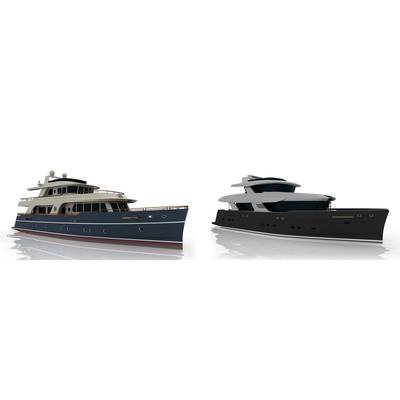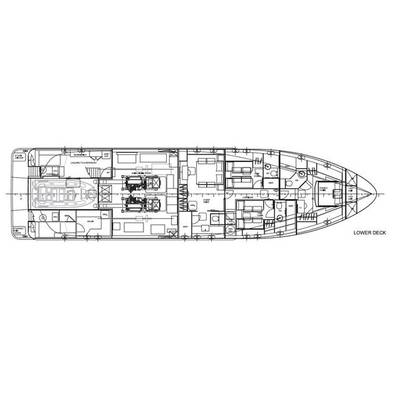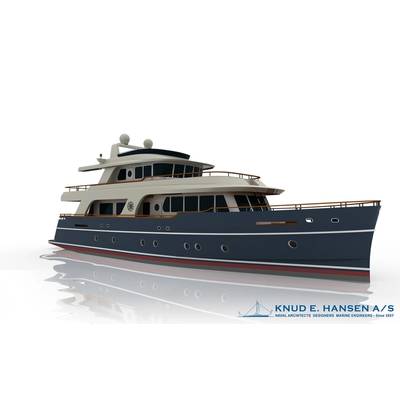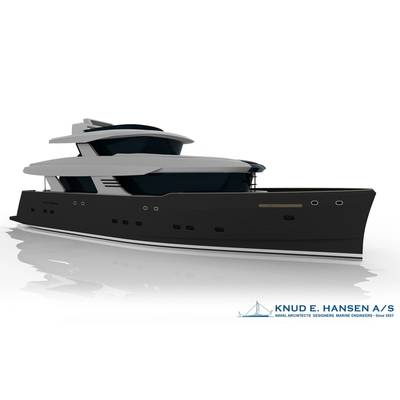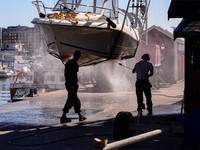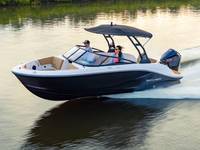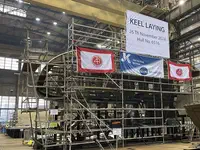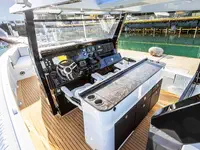Custom Yachts Feature Hybrid Battery Propulsion
A pair of custom motor yachts is packed with state-of-the-art features and technologies, most notable among them: hybrid propulsion systems.
The two yachts may look different, but they are in fact the same design, with an exterior customized according to the owner’s preferences. The owners were keen to give a distinctive look, and several configurations of superstructures were developed with particular focus on personal expression, the designer noted.
The vessels feature reinforced steel hulls and aluminum superstructures, allowing the yachts to navigate the Baltic and North Atlantic year round.
The vessels’ standout feature, though, is the hybrid propulsion system consisting of diesel main engines and back-up batteries. The batteries allow the yacht to slip quietly into a busy marina, maneuver and berth without any harmful emissions or engine noise. As an additional feature in order to save fuel, when cruising at lower speed, the hybrid system supports operating with one main engine only. In this propulsion mode, two shafts and propellers continuously propel the yacht.
Former founder and owners of communication technology company Thrane & Thrane A/S Lars Thrane and Per Blinkenberg-Thrane has entrusted the design development of two cutting edge technology Explorer type Motor Yachts to KNUD E. HANSEN A/S.
KNUD E. HANSEN A/S has developed the Concept and Basic Design as well as specifications in close collaboration with the experienced owners. Furthermore, flag state discussions, shipyard evaluation and contract discussions were undertaken by KNUD E. HANSEN A/S.
The two yachts are designed with identical diesel hybrid CPP (Controllable Pitch Propeller) propulsion system. A diesel electric system - HyPS, developed by a sister company to Holland Jachtbouw, will be integrated in both yachts. The system-technology connects the propulsion Permanent Magnet synchronous machines to an electrical DC - BUS system in combination with a variable speed generator set, a heavy duty light weight Li-ion battery system and shore power supply lines. Furthermore, the main (electric) consumers are connected on the power-consumer side of the DC-BUS system.
GPS and sensors based Dynamic Positioning (DP) systems will automatically maintain the yachts position, by using its propellers, rudders and side thrusters during anchoring and harbor calls.
The DC – BUS powered stabilizer system is based on two sets of active hydraulic driven semi balanced foils (Fins). Each of the four fins are individually operated and work together in order to reduce roll and pitch during anchoring and cruising conditions in order to obtain maximum comfort conditions.
The yacht is designed to be operated by only two persons in keeping with trends toward shorthanded operation, and this is also reflected in the accommodation for up to 12 persons which can be any mix of crew and passengers.
According to the designer, special attention has been given to hull form and propulsion, maneuverability and navigation, seakeeping performance, optimum flexibility and redundancy in propulsion, fuel efficiency and endurance, luxury and comfort, noise and vibration, shorthand friendly operation and super yacht finish.
Main Dimensions
Length o.a.:26.05 m
Length p.p.: 23.2 m
Breadth molded: 6.5 m
Depth to Main Deck: 3.5 m
Draught (design):1.75 m
Scantling draft:2 m
These designs will be available for repeat constructions of similar yachts.
The design- and IP-rights belong to newly established Danish company Poseidon Shipbuilding ApS, who have signed a sales and marketing agreement with DBC Marine ApS, Denmark for the world market.
The construction of the first two vessels has been awarded to Holland Jachtbouw (HJB) who has a distinguished record in building superyachts. The dedicated team at HJB has been engaged in the development of the contract specifications for this project.
The yachts are designed to be in compliance with Lloyds Register Classification Society Rules and Danish Flag Regulations.




